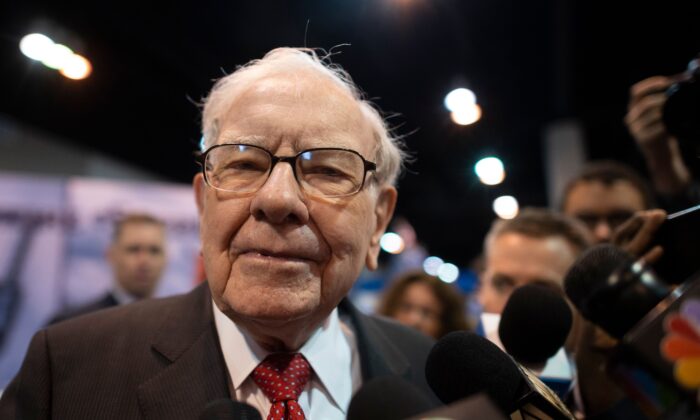It appears that Warren Buffett may be shifting his stance on the U.S. economy or expressing concerns about high stock market valuations, as evidenced by Berkshire Hathaway’s recent sell-off and increase in cash reserves.
Berkshire Hathaway reported a record quarterly operating profit and raised its cash holdings to nearly $277 billion after selling about half of its Apple stake.
Buffett’s cash position surged from $189 billion in the first quarter to a record $276.9 billion by the end of June, primarily due to selling a net $75.5 billion of stocks in the quarter, including half of its Apple shares.
Despite divesting a significant portion of Apple shares, Buffett mentioned during Berkshire’s annual meeting on May 4 that he still believes in the tech giant and anticipates it to remain the company’s largest stock investment.
At the close of the second quarter, about three-quarters of Berkshire’s total fair value was concentrated in Apple ($84.2 billion) and four other major companies: American Express ($35.1 billion), Bank of America ($41.1 billion), Coca-Cola ($25.5 billion), and Chevron ($18.6 billion).
Berkshire’s net stock sales of $75.5 billion in the April–June period marked the seventh consecutive quarter where the company sold more stocks than it purchased.
These actions, coupled with the mounting cash reserves, indicate that Buffett, a highly respected investor, may be growing cautious about the U.S. economy or deeming stock market valuations as excessive.
The majority of the cash ($271.5 billion) was held in Berkshire’s insurance segment, which contributed around half of the company’s profits, with the remaining $5.4 billion in cash allocated to its railroad, utilities, and energy division.
In addition to reducing its stock holdings, Berkshire has been scaling back on stock buybacks, only repurchasing $345 million in the second quarter.
Buffett affirmed at the annual meeting in May that Berkshire is eager to invest but will only do so if the opportunity presents minimal risk and substantial profit potential.
Despite achieving a record $11.6 billion in quarterly operating profit, Berkshire’s revenue saw a modest 1 percent increase to $93.65 billion in the April–June period.
Net income dipped by 15 percent to $30.34 billion from $35.91 billion a year earlier, mainly due to the appreciation of stock prices in both periods, boosting the value of Berkshire’s investment portfolio.
Berkshire’s Class A shares closed Friday’s trading at $641,435, up 18 percent year-to-date, outperforming the S&P 500, which has risen 12 percent during the same period.






